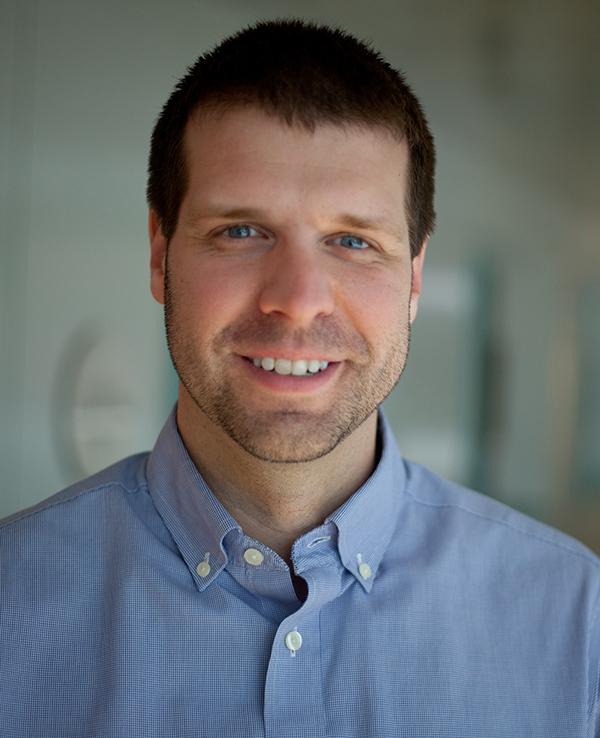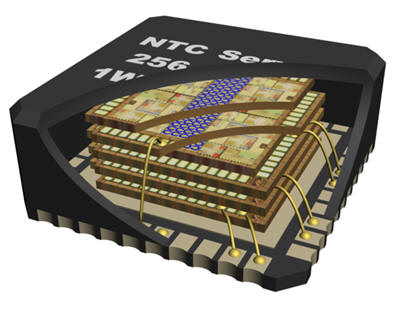Prof. David Wentzloff awarded Young Faculty Award (YFA) by DARPA
Wentzloff is working to develop a wireless 3D interconnection fabric that can provide communication channels and crossbar routing.

 Enlarge
Enlarge
Prof. David Wentzloff, assistant professor in the division of Electrical and Computer Engineering, received a DARPA Young Faculty Award for his research in the area of Micro/Nano-Electronics.
His research project, “3D Wireless Interconnect for Crossbar Routing in Many-Core Processors,” involves development of a wireless 3D interconnection fabric that can serve as a backbone to simultaneously provide communication channels and crossbar routing across multiple stacked die for highly-parallel digital integrated circuits.
Prof. Wentzloff states that what is truly innovative in the research is the use of physical layer circuits to extend the distance of wireless communication, which will enable multiple wireless links to share a common channel that spans multiple stacked die (as shown in the diagram).

 Enlarge
Enlarge
“Wireless 3D communication enables communication among a heterogeneous stack of die,” explains Wentzloff, “such as a digital signal processing IC in a CMOS process and a radio frequency front-end IC in a SiGE process. It also facilitates communication among stacked processors and memories for many-core processors, which can lead to more energy-efficient processing in servers, for example.”
Prof. Wentzloff concentrates his teaching in the area of circuits. He has taught the junior level course Electronic Circuits (EECS 311), the senior level course Monolithic Amplifier Circuits (EECS 413) which also serves as a Major Design Experience course for undergraduate students, and the graduate level course Analog Integrated Circuits (EECS 522).
About the DARPA Young Faculty Award
Prof. Wentzloff received the Young Faculty Award through DARPA’s Microsystems Technology Office. The program exists to “identify and engage rising research starts in junior faculty positions in academia.” DARPA is especially looking for research that focuses “on innovations that will enable revolutionary advances” based on “high-risk/high payoff ideas.”
“The long term goal is to develop the next generation of academic scientists, engineers, and mathematicians in key disciplines who will focus a significant portion of their career on DoD and National Security issues.”
 MENU
MENU 
